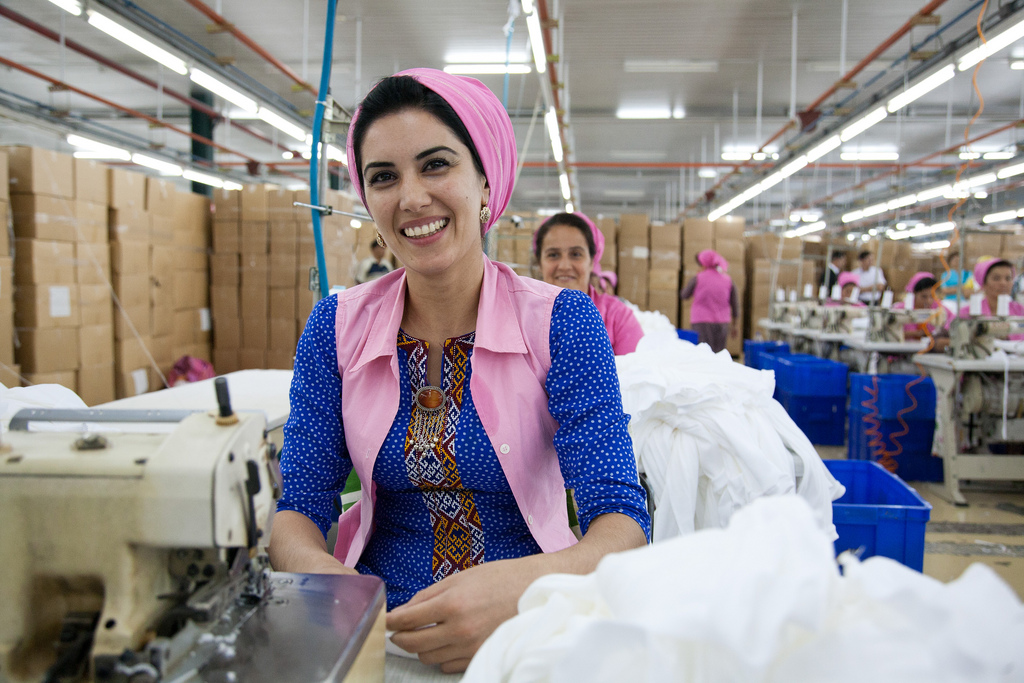Germany’s Supply Chain Due Diligence Act (SCDDA) is a landmark piece of Human Rights due Diligence (HRDD) legislation that already affects German companies with more than 3,000 employees. Soon, the scope of the law will become much wider; as of January 2024, German companies with more than 1000 employees will have to comply. Establishing an effective worker grievance process is key to fulfilling German human rights obligations, compliance with Germany’s Supply Chain Due Diligence Act, and to meet growing expectations around corporate due diligence and accountability. The cost of non-compliance is no secret, companies without an effective grievance mechanism can be fined up to €800,000.
The law is designed to protect the rights of workers who produce goods imported into the German market, and it covers all sectors. It includes eleven internationally recognized human and labour rights indicators, including child labour, slavery and forced labour. It is the first legal requirement of its kind in Germany, requiring companies to identify, assess, and mitigate potential human rights due diligence issues in their supply chains. It will exist alongside EU human rights due diligence legislation like the CSDDD.
Many companies may not be aware that the traditional approach to supply chain worker grievances, like hotlines and web-pages, will not be enough to ensure compliance with Germany’s Supply Chain Due Diligence Act, and new German human rights expectations. Here’s what they’ll need to do to comply.
Clear the Way to Compliance
Germany’s Supply Chain Due Diligence Act requires companies to:
- Create a human rights due diligence policy and carry out a supply chain HRDD risk assessment based on specific criteria;
- Establish a grievance procedure that feeds data in from worker complaints so that companies can evaluate the impact of their policy;
- Carry out risk analysis, preventive measures, take remedial action where necessary;
- Create systems for documentation and non-financial reporting of HRDD risks.
While the requirements are clear, companies have found it tricky to establish HRDD policies that reach workers across the full breadth of the supply chain for a number of reasons. Germany’s Supply Chain Due Diligence Act is unique in that it explicitly stipulates that companies implement an effective human rights due diligence (HRDD) policy. That means they aren’t just responsible for human rights due diligence issues within their own operations, but also those of their suppliers. This also means establishing a supply chain worker grievance system for their direct and indirect business relationships.
SCDDA guidance explicitly states that current grievance systems provide insufficient data from the workers perspective, and so don’t allow companies to effectively assess what works for workers. Despite the long lead-in time for the German human rights law, companies remain unprepared for their new reporting and risk management obligations. Websites and hotlines have been deployed in the past by the majority of companies, but they’re rarely used by workers, and their lack of scalability means they struggle to cover the business relationships stipulated by Germany’s Supply Chain Due Diligence Act. More often than not, companies don’t understand what’s really happening in their supply chains.
Workers often feel they cannot file grievances due to workplace pressure, stigma, discrimination, sexism, and other difficult conditions. In many workplaces, there is only one telephone, publicly displayed. Workers are unlikely to use it to register a grievance in front of their peers or supervisors.
With the SCDDA around the corner, hotlines and grievance websites will not meet the accessibility, anonymity, transparency, data collection, or corporate accountability and due diligence requirements of the SCDDA. German human rights authorities won’t let grievance protocols that don’t reach workers slide.
To achieve high levels of worker engagement, and to obtain data about the where, what and how of human rights due diligence in their supply chains, companies need a worker-first, tailor-made grievance system that workers will actually use.
Ulula: Worker Voice Grievance Systems That Put Workers First
If all of this sounds complicated, it needn’t be. Advances in mobile and communications technology make it possible to implement worker-centric, anonymized risk assessments and worker grievance systems that help companies close the gap between their current grievance processes and ones that satisfy what’s included in Germany’s Supply Chain Due Diligence Act. Digital grievance mechanisms are designed with removing barriers and meeting regulatory obligations in mind. Workers can use them privately on their own devices, removing the social pressure around grievance engagement.
In-person audits are expensive and too infrequent to reveal the full story of worker experiences in the supply chain. As the SCDDA’s scope expands, it’s unlikely that all the companies it covers will have the time and the resources to send ground-truthing teams that cover the entire supply chain.
Ulula’s worker voice tools can provide aggregated data on a variety of worker grievances by type, sector, and other categories that align with the requirements of the SCDDA and upcoming EU human rights due diligence and German human rights due diligence legislation. Ulula’s grievance service is always on, making sure no grievance goes unremediated. It engages workers continuously in a two-way dialogue, so grievances can be addressed proactively, allowing workers to file grievances when they want, not when it’s convenient for their bosses. HRDD Grievance cases can be tracked over time, and shared with relevant stakeholders to facilitate wider inputs.
Digital worker voice technology provides the objective data companies need to ease SCDDA compliance, and can be rolled out across the entire supply chain affordably and equitably.
To take control of your supply chain HRDD policy and establish an SCDDA compliant grievance system that works for your workers, and not just for an audit, get in touch.

